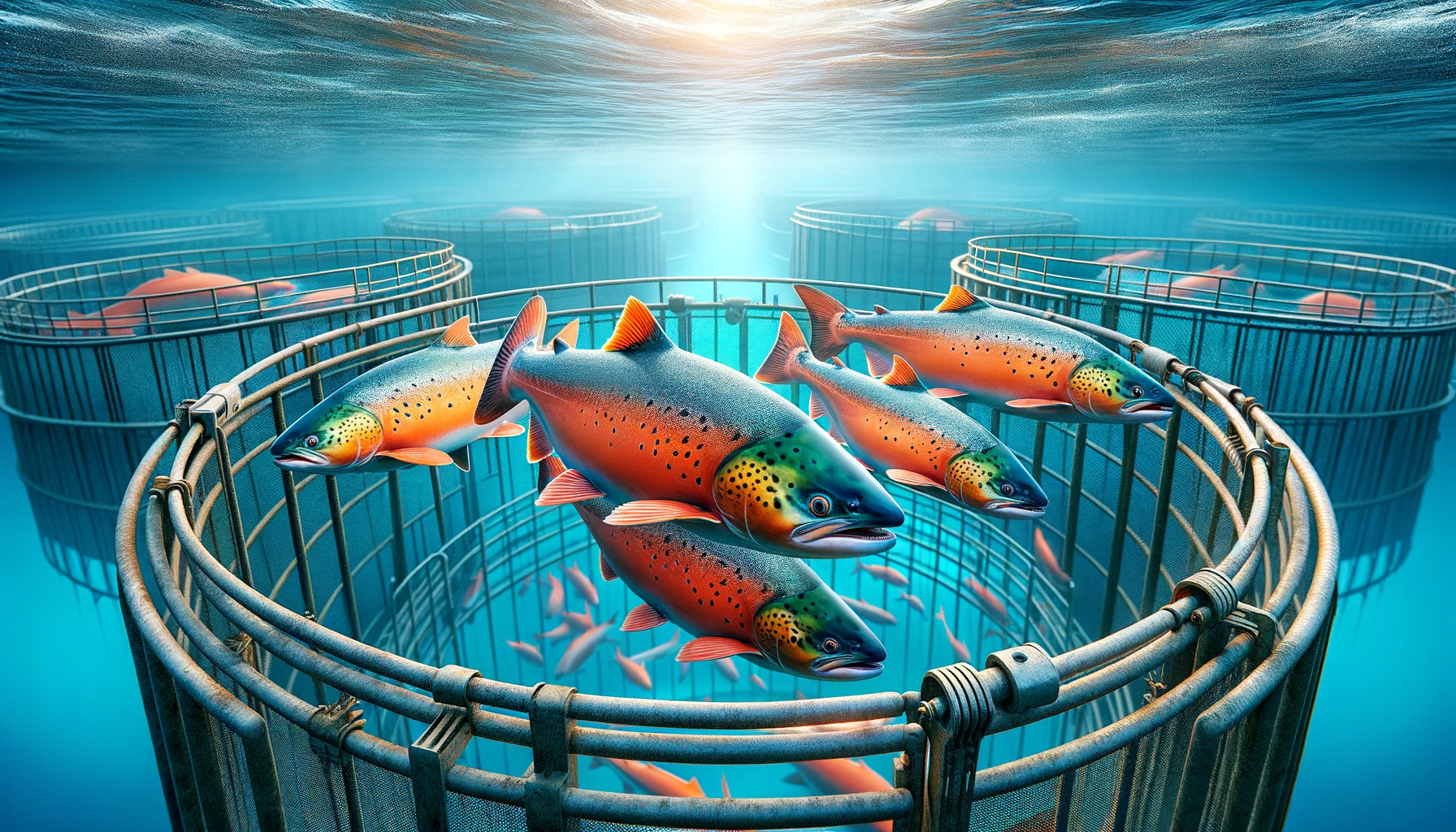Five marine biology and nutrition experts share their insights on claims about farmed salmon’s toxicity. This controversial topic touches on important questions about food safety, environmental impact, and the future of sustainable protein sources as global demand continues to rise.
L Neil Frazer has answered Unlikely
An expert from University of Hawaii at Manoa in Earth Sciences, Marine Biology
Farmed salmon isn’t toxic to the people who eat it, but it is certainly “toxic” to the juvenile wild salmon who must pass salmon farms during their out-migration from their natal streams to the ocean . The sea lice and viruses from the salmon farms can be devastating to wild salmon populations.
Nearly all salmon farming is conducted in sea-cages, which protect the farmed salmon from large predators such as seals and porpoises. However, sea-cages do not exclude pathogens and parasites, which pass freely through the mesh of the cage. Being protected from predators, and fed every day, farmed salmon can live for a long time after becoming diseased. During this time they are constantly shedding pathogen into the water, and the elevated levels of pathogen cause wild fish populations to decline. A salmon farm is thus an unintentional pathogen culture facility.
There is yet another sense in which farmed salmon is “toxic”, which is that little oily fish needed to manufacture feed for farmed salmon are an important source of protein in the diets of third world countries. The oil from these fish is needed for salmon feed because salmon are carnivores: even farm salmon cannot thrive without fish oil in their diets. In consequence, the growing of one pound of farm salmon requires the removal of three to five pounds of wild fish from the ocean.
Peter D Nichols has answered Extremely Unlikely
An expert from Commonwealth Scientific and Industrial Research Organisation in Analytical Chemistry, Marine Science, Nutrition
CSIRO has performed independent analyses of farmed Tasmanian Atlantic salmon, including with emphasis on the health-benefiting long-chain omega-3 oils. Farmed Tasmanian Atlantic salmon is actually one of the best sources available for Australian consumers of these ‘good oils’. Increasing emphasis also has been placed by the Australian producers on the use of sustainable diets. The diet for this important farmed species now includes use of plant and animal derived ingredients, all produced sustainably and using best practices. Other new CSIRO research has seen further development of land plant sources of the long-chain omega-3 oils, and use of these new sources will allow in the future the content of these ‘good oils’ to increase again.
Aleksei Krasnov has answered Extremely Unlikely
An expert from The Norwegian Institute of Aquaculture in Fisheries Sciences
Salmon feeds are made from high quality ingredients that are also used for human consumption. Vaccination success has reduced the use of antibiotics. Farmed salmon is safer than wild fish that can be exposed to environmental pollution.
Mo D Salman has answered Unlikely
An expert from Colorado State University in Epidemiology, Veterinary Science
The use of the term “toxic” is wrongly used for an approach to expand on the production of efficient protein to feed the expanded growth of human population. The extensive aquatic farming including farmed salmon, however, has some negative impact on our biological security if this practice is left without consideration to the environment and biological factors that the practice should adjust for.
Rafael Franco has answered Extremely Unlikely
An expert from Universitat de Barcelona in Parkinson’s Disease, Alzheimer’s Disease, Antioxidants, Nutrition, Pharmacology, Asthma, Cell Biology, Biochemistry
No. I checked the link: “that is the most toxic food in the world” and info there not scientifically sound.
One may wonder about the appropriate number of fish farms and the best proportion of farms of this versus those of such fish, but farmed salmon cannot be the most toxic food in the world. Better wild salmon? obvious, as in any other case of “wild versus farmed fish”.
Verdict: Farmed Salmon Is Not Highly Toxic.
All five experts reject the claim that farmed salmon is “the most toxic food in the world,” with three rating this claim as “extremely unlikely” and two as “unlikely.” While some experts acknowledge environmental concerns related to salmon farming, including impacts on wild salmon populations and resource use, they emphasize that farmed salmon is safe for human consumption. Several note that farmed salmon actually provides valuable nutrients, particularly omega-3 fatty acids, and is produced with increasingly sustainable practices.
To learn more about aquaculture, seafood safety, and sustainable food systems, try searching for related topics on Consensus or check out the questions below.
🐟Do farmed salmon contain lower levels of dioxins and PCBs compared to wild salmon? 🔩Are heavy metal levels in farmed salmon below legal safety limits? ☢️What contaminants are commonly found in farmed salmon, and are they within safe limits? 🐬Can farmed salmon be a significant source of omega-3 fatty acids despite lower DHA levels?